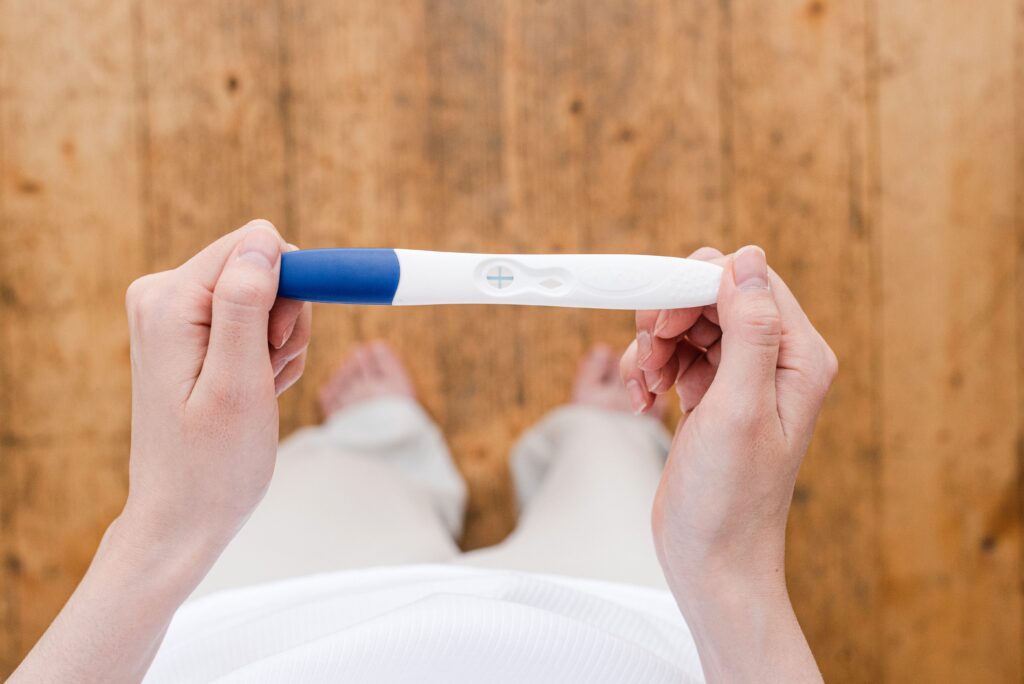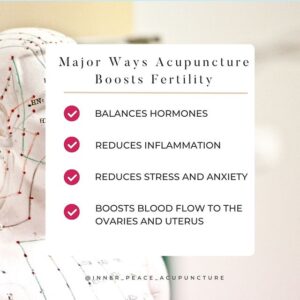Many women find themselves feeling overwhelmed and uncertain after receiving a PCOS diagnosis. The prospect of navigating a disorder that can impact so many areas of their lives can be daunting, to say the least. For those who are trying to conceive, the added pressure of infertility can compound feelings of frustration and uncertainty.
But there is hope. PCOS is a condition that is now better understood. In recent years, there have been numerous studies exploring the effectiveness of different treatments for PCOS-related infertility, such as medications, lifestyle changes, and alternative therapies like acupuncture.
What is PCOS?
Polycystic ovary syndrome (PCOS) is a common hormonal disorder affecting as many as 1 in 10 women globally in their reproductive years. In the United States. As many as 5 million women of reproductive age are affected by PCOS. It is responsible for over 70% of disorders related to ovulation.
Every woman’s experience with PCOS is unique. Some may have difficulty getting pregnant due to irregular ovulation, while others may face challenges with weight management or insulin resistance.
The name “Polycystic Ovary Syndrome” might make you imagine a bunch of little cysts taking over your ovaries, but it’s not quite like that. In PCOS, the ovaries have many small follicles, which are little sacs that contain eggs. These follicles might not mature and release eggs regularly, causing irregular menstrual cycles.
Hormone imbalances are also at play in PCOS. Insulin, which regulates blood sugar levels, can have trouble doing its job effectively, leading to high levels of insulin in the body. This, in turn, can cause the ovaries to produce too much testosterone, a male hormone. This hormonal imbalance can trigger irregular periods, acne, and unwanted hair growth.
How is PCOS treated?
When it comes to the treatment of PCOS, it’s important to note that it should be individualized based on a woman’s symptoms, medical history, and personal goals. The goal of treatment is to manage symptoms, promote hormonal balance, and address specific concerns such as infertility or metabolic issues.
Some potential approaches include:
- Lifestyle modifications such as diet, exercise, weight management strategies
- Medication including birth control pills, anti-androgens, metformin
- Alternative treatment methods such as acupuncture
How using acupuncture for PCOS fertility can help
Recent research suggests that acupuncture, a form of traditional Chinese medicine, may be effective for regulating menstrual cycles in women with PCOS. Acupuncture involves the insertion of fine needles into specific points on the body, aimed at restoring balance and promoting the flow of qi (energy).
Here is what the evidence says:
- A study published in the Journal of Acupuncture and Meridian Studies found that acupuncture treatment led to a significant improvement in menstrual regularity, with many participants experiencing more consistent and predictable cycles. The study suggests that acupuncture can effectively support the regulation of menstrual cycles in women with PCOS.
- In another study, published in the Journal of Endocrinological Investigation, researchers found that acupuncture treatment resulted in a decrease in testosterone levels and an increase in estrogen levels. These hormone fluctuations play a vital role in regulating the menstrual cycle, and the study suggests that acupuncture could help rebalance hormone levels and promote menstrual regularity.
- A randomized controlled trial published in the journal Evidence-Based Complementary and Alternative Medicine found that women who received acupuncture treatment experienced a significant increase in the frequency of menstrual cycles and the rate of ovulation compared to the control group. This demonstrates that acupuncture can have a positive impact on regulating the menstrual cycle and promoting ovulation in women with PCOS.
At Inner Peace, we’re no strangers to PCOS. Our founder, Dr. Adrienne, found passion in helping women conceive after she experienced PCOS and was advised to take birth control pills as pregnancy was likely not possible.
By drawing on the latest scientific research and her own personal experiences, Dr. Adrienne has created a methodology that goes beyond just treating the symptoms of PCOS. The goal of Practically Fertile® Methodology is to address the underlying factors impacting reproductive health. The methodology helps to optimize your chances of conceiving.
If you’re wondering if we can help you, book a free Discovery Call today.





